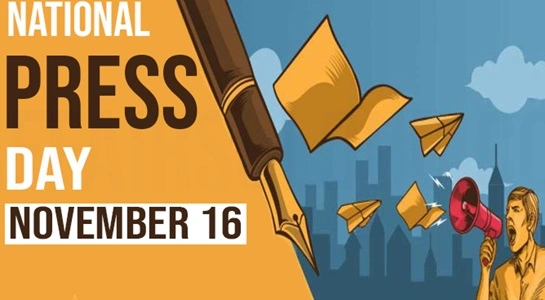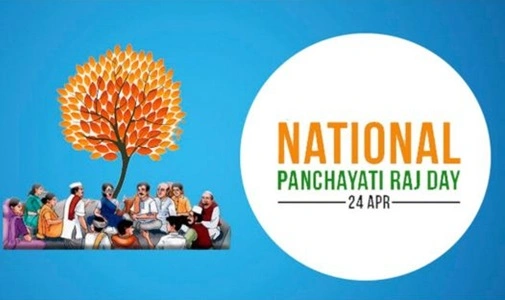National Press Day is observed annually on November 16th in India to celebrate the role of the press as the fourth pillar of democracy. This day is a tribute to the vital role that the press plays in shaping public opinion, holding power accountable, and safeguarding the democratic fabric of the nation. It also marks the establishment of the Press Council of India (PCI) in 1966, a statutory body tasked with preserving the freedom of the press while ensuring its ethical standards.
In this article, we will explore the history, significance, and relevance of National Press Day, along with an overview of the challenges faced by the press in India today and its future prospects.
History of National Press Day in India

The story of National Press Day begins with the formation of the Press Council of India (PCI). The PCI was established on July 4, 1966, under the Press Council Act, 1965, to act as a watchdog for the press and ensure its independence and integrity. The first official meeting of the PCI was held on November 16, 1966, which is why this date was later declared as National Press Day.
The primary aim of the PCI is to promote the freedom of the press while maintaining ethical standards in journalism. It acts as a regulatory body, ensuring that the press does not misuse its freedom and upholds the highest professional standards.
Over the years, National Press Day has grown in prominence as a day to recognize the crucial role of the press in a vibrant democracy like India. It also serves as a platform to address the issues and challenges faced by journalists and media organizations.
Significance of National Press Day
National Press Day is not just a celebration of journalistic freedom but also an opportunity to reflect on the responsibilities and ethics of the media. Here are some key aspects that highlight its significance:
1. Acknowledging the Role of the Press
The press, often referred to as the fourth pillar of democracy, plays a critical role in shaping public discourse, bringing transparency, and holding those in power accountable. National Press Day recognizes and celebrates the efforts of journalists in upholding these values.
2. Safeguarding Freedom of Expression
The freedom of the press is a cornerstone of democracy. National Press Day emphasizes the importance of protecting this freedom while ensuring that it is exercised responsibly and ethically.
3. Promoting Ethical Journalism
The day serves as a reminder for media professionals to adhere to journalistic ethics and maintain integrity in their work. The Press Council of India actively works to ensure that the press does not compromise on these standards.
4. Highlighting Challenges in Journalism
National Press Day also provides an opportunity to discuss the challenges faced by the press, such as censorship, misinformation, fake news, and safety concerns for journalists. It is a platform to find solutions to these pressing issues.
5. Celebrating Press Achievements
The day is also an occasion to celebrate the achievements of journalists and media organizations that have made significant contributions to society through their reporting and investigative work.
Role of the Press Council of India (PCI)
The Press Council of India plays a pivotal role in safeguarding the freedom and ethics of the press in the country. Here are some of its key functions:
1. Protecting Freedom of the Press
The PCI ensures that the press is free from any external pressures, be it from the government, political entities, or corporate influences.
2. Promoting Journalistic Ethics
The council establishes and enforces ethical guidelines for journalists and media organizations to ensure responsible reporting.
3. Addressing Complaints
The PCI acts as a quasi-judicial body that addresses complaints regarding press-related matters. It has the authority to investigate cases of unethical practices or infringement on press freedom.
4. Educating and Guiding Journalists
The council conducts workshops, seminars, and awareness programs to educate journalists about their rights and responsibilities.
Challenges Faced by the Press in India
While the press in India enjoys considerable freedom, it is not without its challenges. National Press Day is an occasion to address these issues and work towards creating a more conducive environment for journalism. Some of the major challenges include:
1. Misinformation and Fake News
The rise of social media has led to the rapid spread of misinformation and fake news, making it challenging for credible journalism to stand out.
2. Censorship and Threats to Freedom
Journalists in India often face censorship and pressure from various quarters, including political entities and corporate powers. This can hinder their ability to report the truth.
3. Safety of Journalists
Attacks on journalists and threats to their safety have been on the rise, especially for those reporting on sensitive issues like corruption, crime, and politics.
4. Financial Pressures
The media industry faces financial challenges, including declining revenues and job insecurity for journalists, particularly in the print media sector.
5. Erosion of Public Trust
Instances of biased reporting and sensationalism have led to an erosion of public trust in the media. Rebuilding this trust is crucial for the credibility of journalism.
The Evolving Role of the Press in the Digital Age
The advent of the internet and social media has transformed the way news is consumed and reported. While these changes have brought opportunities, they have also posed new challenges:
1. Rise of Digital Media
Digital platforms have democratized the dissemination of news, allowing smaller organizations and independent journalists to reach wider audiences. However, this also means increased competition and the need to adapt to new formats.
2. Combatting Fake News
The digital age has made it easier for misinformation to spread. Media organizations must adopt fact-checking tools and practices to maintain credibility.
3. Citizen Journalism
The rise of citizen journalism has both positive and negative aspects. While it allows for greater participation, it also raises concerns about accuracy and accountability.
4. Data Privacy and Security
Journalists now need to be aware of issues related to data privacy and cybersecurity, as digital tools become integral to reporting.
Celebrations of National Press Day
National Press Day is celebrated across the country with events and discussions that highlight the importance of press freedom and ethical journalism. Here’s how the day is observed:
1. Seminars and Conferences
Media organizations, academic institutions, and government bodies organize seminars, workshops, and panel discussions on topics related to press freedom, ethics, and challenges.
2. Awards and Recognition
Journalists and media houses that have made significant contributions to society are honored with awards and recognition on this day.
3. Awareness Campaigns
National Press Day is also marked by campaigns to raise awareness about the importance of a free and responsible press.
4. Publications and Reports
Special reports and publications focusing on the state of journalism and press freedom in India are released to mark the occasion.
The Way Forward
National Press Day serves as a reminder of the critical role that the press plays in a democratic society. To ensure that the press continues to thrive and contribute meaningfully, the following steps are essential:
1. Strengthening Press Freedom
Efforts must be made to protect journalists from censorship and threats, ensuring a safe environment for investigative and independent reporting.
2. Promoting Media Literacy
Educating the public about media literacy can help combat fake news and misinformation, making citizens more discerning consumers of news.
3. Encouraging Ethical Journalism
Media organizations must prioritize ethical journalism and avoid sensationalism to rebuild public trust.
4. Supporting Local and Regional Media
Local and regional media play a vital role in covering grassroots issues. Providing financial and infrastructural support can help them thrive.
5. Adapting to Digital Innovations
The press must embrace digital tools and platforms to stay relevant and engage with the younger generation of readers.
Conclusion
National Press Day is a celebration of the press’s role as the voice of the people and a watchdog of democracy. It is a day to honor the sacrifices and contributions of journalists while reflecting on the challenges they face. As we commemorate this day, let us recognize the importance of a free, fair, and ethical press in building a stronger and more transparent society.
A robust press is essential for the health of any democracy, and on National Press Day, we must reaffirm our commitment to safeguarding its freedom and integrity.

